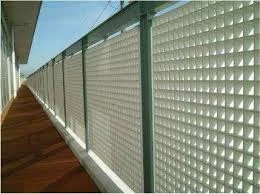
-
 Afrikaans
Afrikaans -
 Albanian
Albanian -
 Amharic
Amharic -
 Arabic
Arabic -
 Armenian
Armenian -
 Azerbaijani
Azerbaijani -
 Basque
Basque -
 Belarusian
Belarusian -
 Bengali
Bengali -
 Bosnian
Bosnian -
 Bulgarian
Bulgarian -
 Catalan
Catalan -
 Cebuano
Cebuano -
 China
China -
 China (Taiwan)
China (Taiwan) -
 Corsican
Corsican -
 Croatian
Croatian -
 Czech
Czech -
 Danish
Danish -
 Dutch
Dutch -
 English
English -
 Esperanto
Esperanto -
 Estonian
Estonian -
 Finnish
Finnish -
 French
French -
 Frisian
Frisian -
 Galician
Galician -
 Georgian
Georgian -
 German
German -
 Greek
Greek -
 Gujarati
Gujarati -
 Haitian Creole
Haitian Creole -
 hausa
hausa -
 hawaiian
hawaiian -
 Hebrew
Hebrew -
 Hindi
Hindi -
 Miao
Miao -
 Hungarian
Hungarian -
 Icelandic
Icelandic -
 igbo
igbo -
 Indonesian
Indonesian -
 irish
irish -
 Italian
Italian -
 Japanese
Japanese -
 Javanese
Javanese -
 Kannada
Kannada -
 kazakh
kazakh -
 Khmer
Khmer -
 Rwandese
Rwandese -
 Korean
Korean -
 Kurdish
Kurdish -
 Kyrgyz
Kyrgyz -
 Lao
Lao -
 Latin
Latin -
 Latvian
Latvian -
 Lithuanian
Lithuanian -
 Luxembourgish
Luxembourgish -
 Macedonian
Macedonian -
 Malgashi
Malgashi -
 Malay
Malay -
 Malayalam
Malayalam -
 Maltese
Maltese -
 Maori
Maori -
 Marathi
Marathi -
 Mongolian
Mongolian -
 Myanmar
Myanmar -
 Nepali
Nepali -
 Norwegian
Norwegian -
 Norwegian
Norwegian -
 Occitan
Occitan -
 Pashto
Pashto -
 Persian
Persian -
 Polish
Polish -
 Portuguese
Portuguese -
 Punjabi
Punjabi -
 Romanian
Romanian -
 Russian
Russian -
 Samoan
Samoan -
 Scottish Gaelic
Scottish Gaelic -
 Serbian
Serbian -
 Sesotho
Sesotho -
 Shona
Shona -
 Sindhi
Sindhi -
 Sinhala
Sinhala -
 Slovak
Slovak -
 Slovenian
Slovenian -
 Somali
Somali -
 Spanish
Spanish -
 Sundanese
Sundanese -
 Swahili
Swahili -
 Swedish
Swedish -
 Tagalog
Tagalog -
 Tajik
Tajik -
 Tamil
Tamil -
 Tatar
Tatar -
 Telugu
Telugu -
 Thai
Thai -
 Turkish
Turkish -
 Turkmen
Turkmen -
 Ukrainian
Ukrainian -
 Urdu
Urdu -
 Uighur
Uighur -
 Uzbek
Uzbek -
 Vietnamese
Vietnamese -
 Welsh
Welsh -
 Bantu
Bantu -
 Yiddish
Yiddish -
 Yoruba
Yoruba -
 Zulu
Zulu
fiberglass fertilizer tanks
Fiberglass Fertilizer Tanks A Sustainable Solution for Agriculture
In the realm of modern agriculture, the efficiency and sustainability of fertilizer storage solutions have become increasingly vital. Among various materials available for constructing fertilizer tanks, fiberglass has emerged as a popular choice due to its numerous advantages that address both practical and environmental concerns.
Fiberglass fertilizer tanks are specifically designed to store various types of fertilizers, including liquid and dry forms. One of the primary benefits of fiberglass tanks is their corrosion resistance. Traditional materials such as steel and concrete can suffer from chemical degradation when exposed to the harsh conditions of fertilizer storage. In contrast, fiberglass tanks are engineered to withstand the corrosive nature of fertilizers, significantly extending their lifespan and reducing maintenance costs.
Another significant advantage of fiberglass tanks is their lightweight nature. This property makes transportation and installation much easier compared to heavier materials. Farmers can quickly relocate tanks as needed, adapting to the changing demands of their agricultural practices. The flexibility offered by fiberglass also means that tanks can be manufactured in various sizes, meeting the specific storage requirements of different agricultural operations, from small family farms to large commercial enterprises.
Moreover, fiberglass tanks provide a secure and impermeable storage solution, ensuring that fertilizers do not leak into the environment. This feature is particularly crucial given the increasing emphasis on environmental protection and sustainable farming practices. By preventing spillage and contamination, fiberglass tanks help in safeguarding groundwater and surrounding ecosystems, aligning with the growing movement toward environmentally responsible agriculture.
fiberglass fertilizer tanks

The insulation properties of fiberglass also add another layer of advantage in varying climate conditions. These tanks can maintain stable temperatures, which is essential for the preservation of certain liquid fertilizers that may be sensitive to temperature fluctuations. This thermal efficiency not only ensures the effectiveness of fertilizers but also contributes to reduced energy consumption, aligning with sustainable farming practices.
In addition to performance benefits, fiberglass fertilizer tanks are also cost-effective in the long run
. While the initial investment may be higher than traditional storage solutions, the durability, low maintenance requirements, and reduced risk of chemical leakage ultimately lead to savings for farmers. This financial incentive encourages more agricultural businesses to adopt fiberglass technologies.Furthermore, the manufacturing process of fiberglass is continuously evolving, focusing on sustainability. Many companies are now incorporating recycled materials in the production of fiberglass tanks, reducing the overall carbon footprint associated with fertilizer storage solutions.
In conclusion, fiberglass fertilizer tanks represent a significant leap forward in agricultural storage solutions. Their resistance to corrosion, lightweight construction, impermeability, thermal efficiency, and potential for sustainable production make them an ideal choice for modern farming needs. As agriculture continues to innovate and adapt to the challenges of sustainability and efficiency, the role of fiberglass tanks will undoubtedly grow, proving essential in the journey toward a greener agricultural landscape.
Latest news
-
Exploring the Benefits of Top Hammer Drifter Rods for Enhanced Drilling PerformanceNewsJun.10,2025
-
High-Precision Fiberglass Winding Machine for GRP/FRP Pipe Production – Reliable & Efficient SolutionsNewsJun.10,2025
-
FRP Pipes & Fittings for Shipbuilding - Corrosion-Resistant & LightweightNewsJun.09,2025
-
Premium FRP Flooring Solutions Durable & Slip-ResistantNewsJun.09,2025
-
Premium Fiberglass Rectangular Tanks Durable & Lightweight SolutionNewsJun.09,2025
-
Tapered Drill String Design Guide Durable Performance & UsesNewsJun.09,2025









